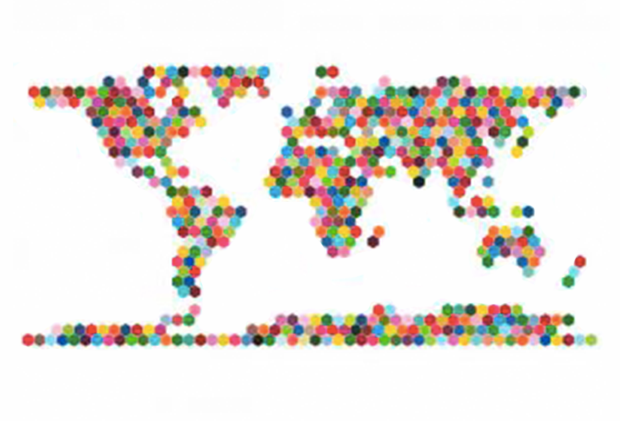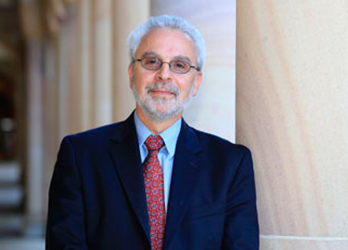 The effects of corruption are well established, including the unfair form of taxation on business, demoralization of society, brain-drain and damage to economic development. The global community has made a substantial investment in human and financial capital in the last decades. The results, however, have not been close to our lofty expectations. We need to pay attention to disappointing data coming from around the world, learn the lessons, draw on the positives and engage in collective actions, ensure they are sustainable and work on growing and scaling them towards more integrity and accountability in business and government.
The effects of corruption are well established, including the unfair form of taxation on business, demoralization of society, brain-drain and damage to economic development. The global community has made a substantial investment in human and financial capital in the last decades. The results, however, have not been close to our lofty expectations. We need to pay attention to disappointing data coming from around the world, learn the lessons, draw on the positives and engage in collective actions, ensure they are sustainable and work on growing and scaling them towards more integrity and accountability in business and government.
A comprehensive normative framework has been created with regional and international conventions, such as the OECD convention against bribery of foreign officials and the comprehensive, nearly universal UN convention against corruption (UNCAC). National laws have been mushrooming, including some with powerful extra-territorial application, such as the US Foreign Corrupt Practices Act and the UK Bribery Act. These are supplemented by soft law (FATF Recommendations) and self-commitments strong voluntary commitments (e.g. the Anti-Corruption Action Plan for Asia and the Pacific), and a host of good practice papers (e.g., the OECD Good Practice Guidance on Internal Controls, Ethics, & Compliance of 2010) and principles or other guidance (e.g., from the International Chamber of Commerce, the World Economic Forum, the UN Global Compact, NGO initiatives). A new ISO standard is now introduced specifically against bribery (ISO 37001) that is likely to lead to additional certification programmes and services. So, there are plenty of legal texts, principles and documents.
Because of the obvious connections between the anti-corruption agenda and those of good governance, rule of law and sustainable development projects, significant funds have been allocated, including a growing, multi-billion dollar technical assistance and consulting cottage industry.
One would expect good progress with this big investment. Yet, whatever metrics one decides to employ, the results are not so good. Corruption laws and measures have often been used against the opposition rather than across the board. In many instances, authorities go after lower-level officials, while kleptocractic practices continue and high-level officials enjoy impunity. Many reforms have led to unnecessary bureaucracy, complexity and red tape adding to incentives towards circumvention of the rules rather than legitimacy and credibility. Compliance at state and business levels are more about check-the-box approaches and literal interpretation of rules rather than focus on the ultimate objectives presumably served by the rules.
Perception data trends worldwide are flat or downward, especially even where activity has been rather heavy (e.g. in Africa). Global Integrity points to serious gaps in implementation of laws and measures. The World Bank Institute’s governance indicators are also flat when it comes to rule of law and anti-corruption. One would expect that the ratification of the UNCAC would be accompanied by improving results, but these are actually negative. The same applies to the introduction of specialized Anti-Corruption Agencies, some of which are born in the aftermath of scandals and crisis, enjoy popularity at first, raise expectations, but make promises they cannot keep, decline, lose powers or get abolished.
What accounts for this frustrating situation? For one, political will is not always genuine. Many efforts do not benefit from a proper diagnostic of the particular country or regional problems and recognition of root systemic problems. A lot of initiatives come from the top or from outside the country rather than from multi-stakeholder participation and contributions. As a result, a good deal of the changes are “off the shelf” and ‘passe-partout’ ideas despite the rhetoric of individualization and respect for country special conditions. There is a distinct lack of strategic approaches that can guide the multi-year effort that it takes for true social change. Law has been thrown at the problem, as if legal and regulatory changes were enough to bring about the desired societal change. Educational institutions have not provided adequate support for the promotion and maintenance of a culture of integrity.
Consequently, resources are being wasted, efforts are unsustainable, while successes prove to be temporary and reversible. This undermines early optimism, legitimacy and credibility of the overall endeavor. This is what academics must counter in concert with the state, business and other stakeholders in the following ways.
Firstly, through capacity building. This means raising the social awareness about the problems, standards and policies or measures that are currently in place. Developing and applying methods to assess and respond to external or other evaluations. Engage in research for knowledge production and distribution. Get together and brainstorm on teaching practices, readings, cases, case studies, methods, use of technology for the creation of skills required for the effort toward integrity and accountability. To some extent, this may entail training the teachers and the professors. Certificate programs and executive degrees for public and private sector, such as those offered by IACA are also to be drawn on as well as national university undergraduate and graduate degrees.
Secondly, by contributing to the sustainability of efforts. This means, adding to continuity through cohorts and generations of students that will staff business and government organizations. Emphasizing values and ethics in courses and trainings that build a culture of integrity – affecting attitudes as well as future behavior. Teachers touch the youth and can change the future, as students will become leaders and cadres. Importantly, scholars can assist with the construction of a national or regional strategy based on research and the active involvement of all stakeholders.
Thirdly, explaining and emphasizing the importance of the local/national context. We know that there are different manifestations, types and causes of corruption. We need to focus on the main features of corruption at home – from bribery and extortion to the abuse of power, clientelism, favoritism, and conflicts of interest. Contextualization will draw on history, culture, current practices, sociology as well as economics and political science. This will yield an articulation of national or local specificities and priorities. We can visualize the effects of corruption and impunity, stimulate innovative thinking, instill hope and inspire students for involvement and initiative. Strategy will thus be better grounded in evidence and deep understanding and will unfold in stages reflecting the local preferences for sequencing and timing.
Fourthly, through independence. Academic tenure and job protection serve to ensure that “we tell it like it is” and engage in constructive, well meaning criticism of existing arrangements and identification of vulnerabilities and areas for improvement. Through the cultivation of a critical spirit, constructive feedback, reasoned arguments and innovation, we can produce evidence-based dialogues, informed interactions among stakeholders and solid policy-making. This is conducive to an enabling environment, richer resources and pragmatism.
Finally, communication and the spreading of alternative approaches, good practices, lessons learned, successes that can be replicated and identification of new challenges and targets for the next steps is another function to be performed by academics, who teach, train, publish, organize conferences and travel with their message around the country and the world to constantly learn also about new laws, solutions, challenges and ideas.
There are good ideas that need to be studied. For example: participatory budgeting from Porto Alegre to Keral and Pune, the websites ipaidabribe in Greece, India, Indonesia, Kenya and elsewhere, open government initiatives in many countries, etc. Collective action projects from Argentina to Thailand provide other examples of successes that may be replicated in other sectors or regions.
So, academics can be among the toolmakers and manufacturers of sustainable anti-corruption and development. We can offer inspiration and stimulus for positive action and change. We can become the conscience of public and private officials as well as of members of non-governmental and international organizations. This can be the spring of well-founded hope for a better future.










